























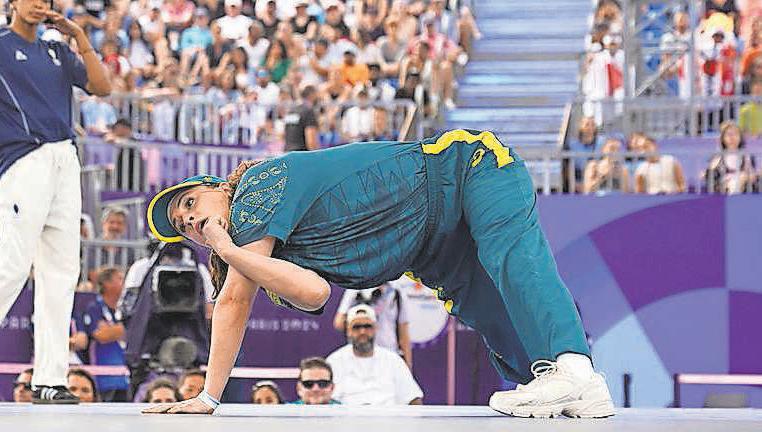
If you don’t know, 36-year-old Australian “breakdancer” Rachael Gunn (aka “Raygun”) has gone viral for her last-place performance at the 2024 Paris Olympics breakdancing competition. Gunn, a white college professor with a Ph.D in Cultural Studies, earned her doctorate by writing a 355-page thesis on Breakdancing. And that point is kinda important. Because as a #blackhomeeducators TikTok post points out, it makes perfect sense how “Raygun,” who is objectively horrendous at breakdancing, could be a participant in a global competition to determine the planet’s best breakdancer. Why? Because “Columbus-ing” (cultural appropriation) is a phenomenon well-known in all aspects of life, but especially at the college level. Tere, white academics have the “caucastic” nerve to think their study of Black culture gives them the authority to claim expertise over Black culture. Te sister who posted the TikTok “Raygun” commentary said, “Tis [Columbus-ing] is so prevalent that it has made its way to the — Olympics. White supremacy is a helluva drug.” FYI, this whitewashed breakdancing won’t be coming to the 2028 LA Olympics.
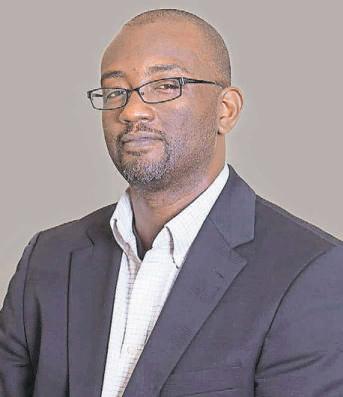
Aswad Walker
who abuse and kill unarmed Black people, denigrate Black history and Black studies, and support a full-on white supremacist POTUS candidate and his white nationalist, neo-nazi cabal. It’s inexplicable, yet very simple to understand. Unlike my back-inthe-day Black Republican homie (who long ago lef that party), these modern-day “skinfolk-not-kinfolk” aren’t on the GOP “plantation” because of principles or belief in the GOP platform. It’s all about what media personality and author Clay Cane’s best-selling book speaks to – “Te Grif” – how to get money and fame by willingly being more anti-Black than the Klan.
Back in the day, me and a Black GOP friend would have long, deep debates over politics and global issues. I took the progressive stance on local, national and global happenings. He went the GOP’s fscal conservative, small government route. And afer arguing, we would go out and “fght the power” together for Black people’s liberation. But today’s Black Republicans are on some diferent kinda stuf. Teir favorite line is “Black people need to get of the Democrat plantation.” But yo, the Republican Party is nearly 95% white. So, who’s really on a plantation? Not only that, “back-in-the-day” Black Republicans were actually Black, and fought for Black people and Black issues. Today, they literally vote against Ketanji Brown Jackson for the Supreme Court, attack Pres. Obama with the racist birtherism lies, support the voter suppression of Black and Brown people, attack policies and social programs that helped them personally (hello Uncle Tomas), celebrate and defend cops
IT’S NOT WHAT THEY CALL YOU THAT MATTERS Serial-lying, 26-time accused and one-time convicted sex ofender, six-time bankrupt, twice impeached and 34-time convicted felon Donald Trump has made a name for himself calling people “out-they-names.” He’s got a demeaning, sexist or racist or classist or just plain “ignant” nickname for anyone and everyone he’s afraid of. And true to form, he’s called the Democratic Party’s candidate for President of the United States, VP Kamala Harris, “out-her-name.” He’s called her “crazy,” “fake,” “incompetent,” “lying” and “low IQ.” Drumpf (Trump’s original family name) has recently taken to calling Harris “Kamabla,” though folk aren’t sure if that’s a nickname he gave her or just his cognitive lapses showing. Anyway, most recently, it’s been “revealed” that Trump has called Harris a “b*tch” on several occasions. I put “revealed” in air quotes because ain’t nobody surprised by that. But more importantly, like every Black elder who has ever “eldered” has said at some point in their “eldering,” “It’s not what they call you that matters; it’s what you answer to.” And though white privilege may allow Trump to avoid ever being called “inmate,” come this November, VP Harris will be answering to the name “Madame President.”
ON THE WEB
• Is COVID making a comeback in Houston?
• Why courts use laws tied to slavery, and how to stop them.
• Managing back-to-school anxiety: a guide for parents, children.
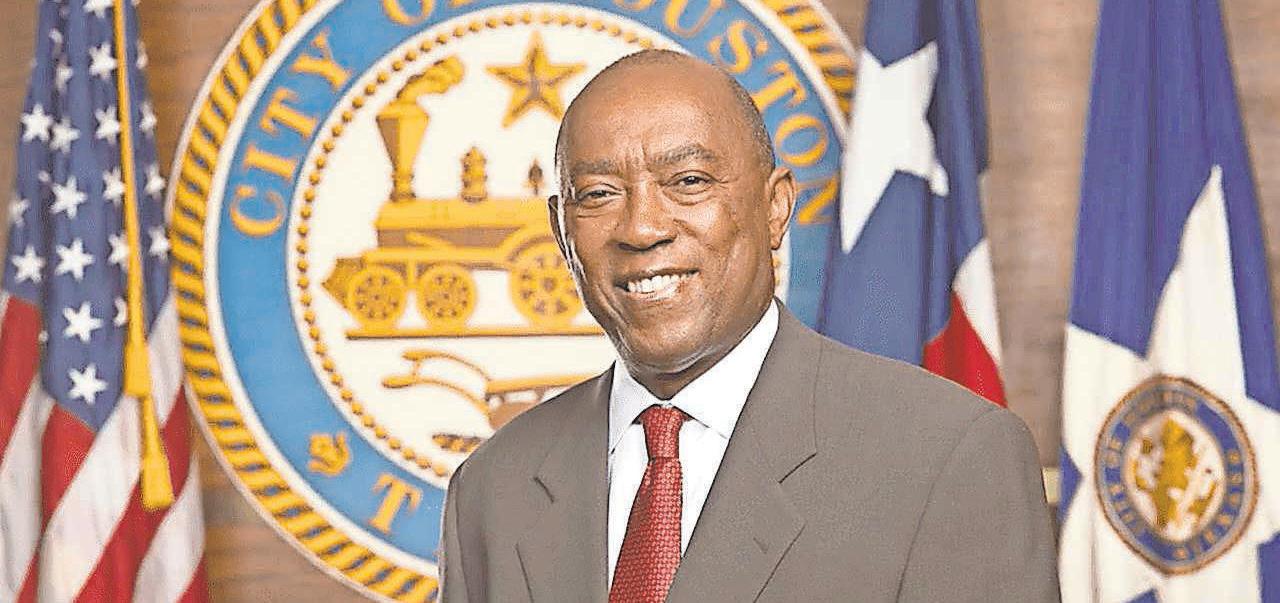
By Aswad Walker
Te 88 precinct chairs from District 18 have spoken. Sylvester Turner, Houston’s former mayor, was selected by the precinct chairs as the Democratic candidate to appear on the Nov. 5 ballot seeking to become the elected official tasked with upholding the legacy of the historic U.S. Congress 18th Congressional District seat – a seat held by legends Barbara Jordan, George “Mickey” Leland, Craig Washington and Sheila Jackson Lee.
Following Jackson Lee’s passing on July 19, speculation arose as to who would be the next person to represent District 18. Several individuals sought the seat, including former Houston City Council member Amanda Edwards, State Rep. Jarvis Johnson, State Rep. Christina Morales, current Houston City Council member Letitia Plummer, Robert Slater (Houston chef and entrepreneur), Corisha Rogers (activist) and Cortlan Wicklif (associate vice provost of academic afairs at Rice University).
However, on the evening of Aug. 13, the District 18 precinct judges met at Wheeler Avenue Baptist Church to cast their votes. Turner emerged victorious after a runof between he and Edwards, the two top vote-getters during the initial voting.
Te fnal tally: Turner 42, Edwards 37.
Just days before the precinct chairs’ decision, a District 18 Candidates Forum was held on Aug. 10 at Young Women’s College Preparatory Academy (1906 Cleburne St., Houston, 77004). Coordinated by the Southeast Democrats Network and the Black Women of Greater Houston PAC, the forum provided an opportunity for precinct chairs and the general public to hear from the candidates in person.
Te forum was moderated by DeLaun Dillard, Fox26 Houston morning anchor, and Sonny Messiah Jiles, CEO of the Defender Network, who each asked the candidates serious and probing questions, giving attendees a good sense of what each candidate brought to the table.
With Turner now on the ballot, he will face Republican Lana Centonze on Nov. 5 to see who will ultimately go to Washington D.C. to represent Texas’s District 18. Te winner of that race will begin their term on Jan. 3, 2025, the same day the term of the person who wins the Special Election “interim” District 18 seat ends.
Texas Governor Greg Abbott called the special election to fll the seat from November to Jan. 3, 2025. And though persons interested in running for that “interim”
seat have until Aug. 22 to register, the current odds-on favorite appears to be Erica Lee Carter, daughter of Jackson Lee, who announced on Aug. 12 that she will enter the Special Election.
“The people of the 18th Congressional District, re-elected my mother to the 118th Congress to protect their interest and uphold our democratic values,” said Lee Carter. “Congresswoman Jackson Lee kept their interests in her heart and mind until the very end. Since then, so many community leaders and democratic stalwarts have requested that I consider completing her term this year by running in the Nov. 5 Special Election. Afer careful consideration, the answer is YES.”
Whether it be Lee Carter, who endorsed Turner for the “full-term” position, or someone else, the person who wins that “interim” seat will make way for Turner in January should he win the Nov. 5 race. Tough Turner will be a U.S. Congressional novice, he is no newcomer to politics, having served as Houston’s mayor for eight years and 27 years in the Texas Legislature.
Turner said during the Aug. 10 Candidates Forum that he would serve as a “bridge candidate,” with plans to serve only one or two terms.
An investigation into the 2022 Harris County general election has found no criminal activity related to the contest, according to Harris County District Attorney Kim Ogg. Te investigation, launched in response to concerns raised by Governor Greg Abbott, focused on allegations of improprieties during the election, including voter suppression and equipment failures. However, the inquiry concluded that there was no intentional misconduct aimed at suppressing voter turnout.
Te only case to emerge from the investigation involves Darryl Blackburn, a former data analyst with the now-defunct Harris County Elections Administration Office. Blackburn, who was responsible for allocating equipment and supplies, such as paper ballots, to 782 polling locations across Harris County, faces six felony charges. Ofcials say Blackburn worked a second full-time job at an oil and gas company for about 15 months and that dual employment led to Blackburn’s negligence. Instead of carefully allocating ballot paper, he divided the total number of polling locations by the amount of paper he had, resulting in a haphazard and inadequate distribution.
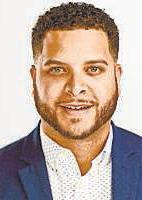
Blackburn is accused of falsifying timesheets, claiming hours for both jobs simultaneously and earning over $90,000 from the county and more than $250,000 from his second job during the same period. Despite these charges, Ogg emphasized that there was no evidence to suggest Blackburn intended to infuence the election’s outcome.
Blackburn is being held on a $65,000 bond. Ogg says no further charges are pending, marking the conclusion of this investigation.

In a monumental move to address the underrepresentation of Black physicians in the United States, Bloomberg Philanthropies has announced a $600 million donation to the endowments of four historically Black medical schools. Ofcials said the donation is part of Bloomberg Philanthropies’ Greenwood Initiative, which aims to advance racial wealth equity and address systemic underinvestment in Black institutions and communities.
Howard University College of Medicine, Meharry Medical College, and Morehouse School of Medicine will each receive $175 million, while Charles R. Drew University of Medicine & Science will receive $75 million. Additionally, Bloomberg said $5 million in seed funding will support creating a new historically Black medical school in New Orleans, the Xavier Ochsner College of Medicine. Te historic investment will more than double the endowments of three medical schools, signifcantly boosting their fnancial stability and capacity to educate future Black physicians.
A recent study highlighted the need for
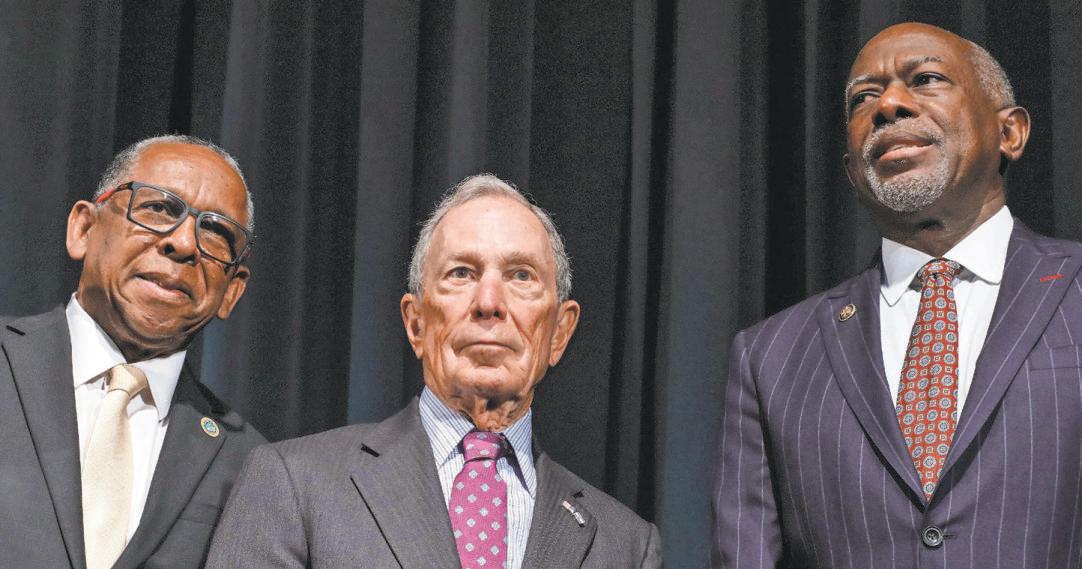
such support, revealing that only 5.7% of U.S. physicians identify as Black or African American. Tis is despite Black Americans comprising 13% of the population. According to research, treating Black patients by Black doctors results in better health outcomes and more frequent medical care. For
instance, Black patients are 34% more likely to receive preventative care if they see Black doctors.
The four historically Black medical schools receiving funding reportedly graduate around half of all Black doctors in the U.S. but have been traditionally
underfunded due to systemic inequities, including lower federal and state support. Since the early 1900s, discriminatory practices and the impacts of the Flexner Report have led to the closure of 10 Black medical schools in the United States. Te fnancial boost from Bloomberg Philanthropies should have a transformative impact.
Michael Bloomberg, the former New York City mayor, Democratic presidential candidate, and founder of Bloomberg LP, formally made the donation at the National Medical Association’s annual convention. “Tis gif will empower new generations of Black doctors to create a healthier and more equitable future for our country,” Bloomberg said.
In 2020, Bloomberg Philanthropies granted $100 million to these same medical schools to reduce the debt load of enrolled students facing severe financial burdens exacerbated by the COVID-19 pandemic. Valerie Montgomery Rice, president of Morehouse School of Medicine, noted that the 2020 gif relieved an average of $100,000 in debt for each student, significantly enhancing the school’s ability to fundraise and support its students.
Black farmers will soon begin receiving payments from the $2.2 billion Discrimination Financial Assistance Program (DFAP). Afer decades of advocacy and struggle, John Boyd, president of the National Black Farmers Association (NBFA), declared the day “a huge win.”
Nearly two years ago, President Biden signed the Infation Reduction Act (IRA) Section 22007, authorizing compensation for farmers who faced racial discrimination in the United States Department of Agriculture’s (USDA) farm lending practices before 2021. Tis week, around 43,000 farmers will receive payments of up to $500,000, with the average award being $82,000.

Reflecting on this long-awaited achievement, Boyd recounted his journey, which began almost 40 years ago when he frst experienced these injustices. “No matter how it is sliced, the $2.2 billion in payouts is historic,” he said. Tis follows previous settlements, including a $1 billion payout in 1999 and a $1.25 billion settlement in 2013.
Te NBFA’s relentless eforts have also paved the way for similar settlements with Hispanic and women farmers ($1.3 billion), Native American farmers ($800 million), and the Cobell case settlement ($3.4 billion).
Boyd’s dedication to justice has been challenging. He faced hateful phone calls, mail, and even death threats. Despite these obstacles, he remained steadfast in his fght. “Total restoration is impossible, but for me, the fght was about justice,” Boyd emphasized.
Midtown Group, an unbiased third-party administrator, oversaw the DFAP’s administration to ensure a fair adjudication procedure for each farmer’s case. Although the 40-page application process and long wait times added to the farmers’ pain, the payments represent a bittersweet victory. Boyd acknowledged that issues such as banks denying operating funds or farm ownership loans persist, as do recent allegations of racial discrimination against companies like John Deere. For those denied assistance through the DFAP, there is no appeal or review process, a reality Boyd profoundly regrets. Many Black farmers have died waiting for justice, but today’s announcement brings some closure. Boyd refected on his tireless eforts, from lobbying Congress to protesting with his mules “Struggle” and “Forty Acres,” and riding his tractor, “Justice,” to Washington. Listening to Senior White House Advisor Stephen Benjamin detail the award notifcations and
check disbursement made it all worthwhile. “Today is a huge win for the NBFA,” he declared.
In October 2022, civil rights attorney Ben Crump announced a class action suit against the United States government on behalf of the NBFA. Te lawsuit came afer fndings that Black farmers lost approximately $326 billion of land due to discrimination during the 20th century. Crump and the farmers argued that the federal government breached its contract with socially disadvantaged farmers under the American Rescue Plan Act.
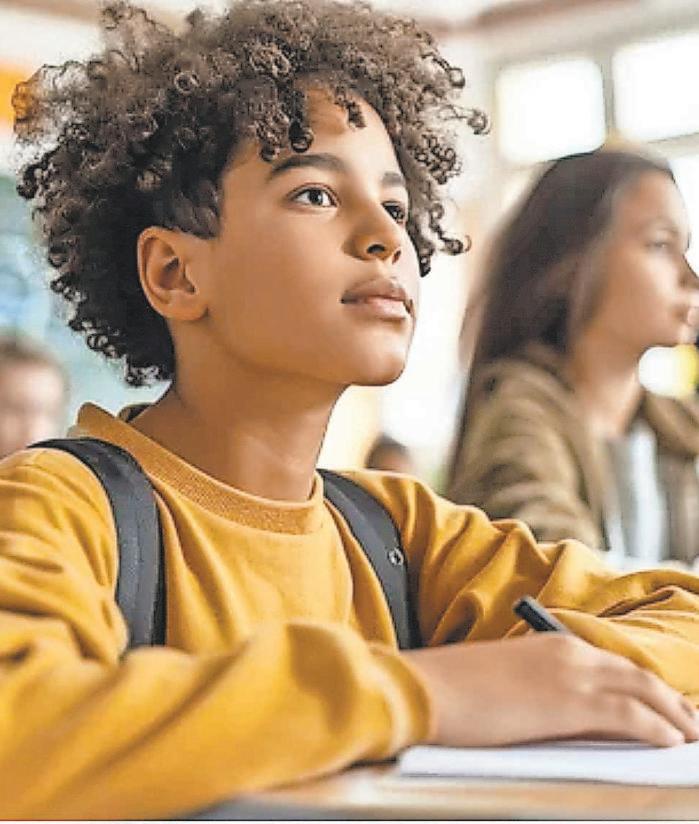
Support for vouchers and educational savings accounts held steady across racial and partisan lines, although it is highest among Black Texans and Republicans, particularly so among Black and Latino Republicans. Credit: Adobe Stock Images
By Laura Onyeneho
A recent survey by the Hobby School of Public Affairs at the University of Houston and the Executive Master of Public Administration program at Texas Southern University reveals strong support among Texans for school voucher plans and educational savings accounts (ESAs). About two-thirds of respondents favor these proposals, indicating a significant shift in public opinion.
One of the main concerns regarding implementing school vouchers and ESAs is their impact on public school funding. Professor Renee Cross, senior executive director of Hobby School of Public Affairs at the University of Houston, addressed this issue, stating, “Our survey doesn’t specifically address the impact on funding, but many respondents believe it will affect public school funding. Even supporters of vouchers and educational savings accounts admit this impact.”
While the survey doesn’t delve into the specifics of how public school funding might be affected, the acknowledgment by both supporters and opponents suggests a widespread belief that these programs could divert resources from public schools.
School vouchers have been a prominent topic in Texas politics for years. Cross noted, “School vouchers have been a prominent issue in the Texas legislature for at least the last decade. The governor and lieutenant governor have strongly advocated for these proposals, making it a key topic in our annual survey.”
State leaders’ persistent advocacy, especially Governor Greg Abbott and Lieutenant Governor Dan Patrick, has kept the issue at the forefront of legislative discussions. Despite previous
proposals failing to pass, the continued push for vouchers indicates it will remain a crucial topic in the upcoming legislative Conducting a comprehensive survey involves thorough planning and analysis of current issues. Cross explained the process: “We look at the most prominent issues affecting our state, such as education, the electrical grid, and immigration. We then narrow it down to a few topics for the survey.”
This rigorous methodology ensures that the survey results reflect Texans’ most pressing concerns. The researchers can provide valuable insights that inform public discourse and policy decisions by focusing on key issues.
The survey’s findings are intended to inform a broad audience, including policymakers and the general public. Cross highlighted this goal: “These reports are for elected officials, private sector decision-makers, and voters. They allow likely voters to weigh in on legislative proposals, helping inform policymakers and community advocates.”
In Texas, where statewide referendums are not held, such surveys offer a critical platform for Texans to express their views on potential legislative actions. This feedback can guide policymakers in crafting proposals that align more closely with public opinion.
One of the survey’s most notable findings is the bipartisan support for school vouchers. Cross observed, “Support for vouchers is not limited to Republicans. Our survey and others show that support crosses racial and partisan lines, with Black Democrats often agreeing with white Republicans more than white Democrats on this issue.”


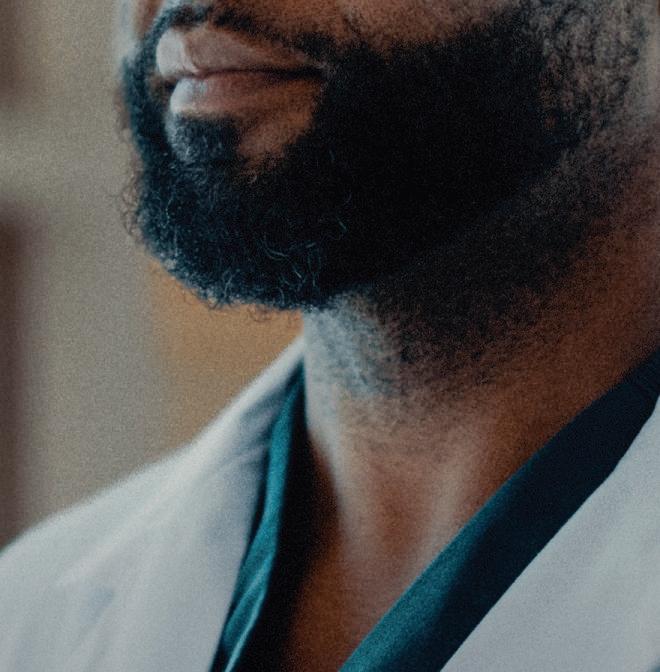





By Laura Onyeneho
Now that HISD is well into its first week of school, Superintendent Mike Miles is addressing a number of challenges the district is already facing.
In a recent press conference, Miles highlighted the district’s success in staffing. “We had 28 vacancies out of 10,640 positions,” he said, highlighting that less than 0.3% of teachers were absent, and most classrooms were led by regular teachers rather than substitutes. Notably, none of the New Education System (NES) schools required substitutes, ensuring students received effective instruction on day one.
Miles admitted that transportation was a significant concern for HISD. Last year, the district spent $56 million to transport 9,000 students, which led to a reassessment of the transportation system. Miles explained that the district introduced changes, including adding satellite locations and implementing the EduLog software to optimize bus routing.
However, the rollout of EduLog has encountered issues, with some families receiving incorrect bus routes or multiple route notifications, which can be confusing. “We’re going to do better tomorrow,” Miles assured, acknowledging that while the system’s impact on schools was minimal, any
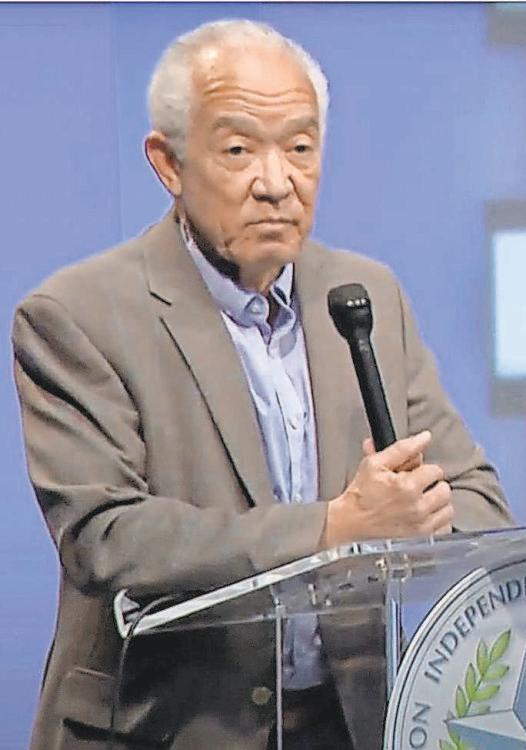
inconvenience to families is significant. The district plans to double the size of its call center to better assist parents with transportation inquiries moving forward.
When pressed for data on late or missed bus routes, Miles admitted that specific
numbers were unavailable as the district was still gathering detailed information. He reiterated, however, that the “overwhelming majority” of buses arrived on time, with only a few delays attributed to first-day traffic around schools.
Miles also responded to concerns about students waiting for buses that did not arrive on time, particularly at Sharpstown, where students headed to Carnegie were affected. He said he was unaware of the specific issue but committed to investigating it further.
Some parents expressed frustration with late notifications about bus routes, which Miles acknowledged. He explained that while routes were distributed approximately 10 days before school started, the district had to balance the timing to account for student registrations, which could alter routes. “This happens every year,” he said, stating that the district issued 17,000 bus routes, though not all students would use them.
He also addressed a significant issue concerning air conditioning on buses, particularly those serving special needs students.
Some bus drivers reported that their buses lacked functioning air conditioning, a concern they had raised with management to no avail. Miles stressed the importance of bus drivers performing pre-driving checks and urged them to report such issues to their dispatchers for resolution. He also committed to following up on specific cases if details are provided.
The discussion also covered air conditioning problems in school facilities, a pressing issue given Houston’s summer heat. While Miles acknowledged that there are always some classrooms with air conditioning problems, he stated that the district is “on top of every single classroom.” When necessary, the district has arranged to move students to cooler areas, such as libraries or auditoriums. The only school with significant issues on the first day, according to Miles, was Furr High School, where students were relocated from the third floor to cooler areas on the first floor.
In response to questions about future bus routes and ensuring all students have access to transportation, Miles confirmed that the district is actively working through a list of 700 students who currently lack routes. The district will update parents as the situation evolves.
By Laura Onyeneho
Voters will have the final say in the upcoming November election as to whether the Houston Independent School District will approve a massive school bond.
The approval of this $4.4 billion bond is significant not only for its size but also for the context in which it arrives. This will be the first major decision left to Houston voters since the Texas Education Agency (TEA) took control of HISD, appointing a new superintendent and board of managers in June 2023. The bond’s approval on Nov. 5 could be pivotal, marking the community’s first real opportunity to influence district policy under the new leadership.
The $4.4 billion bond is split into two propositions:
Proposition A: Allocates $3.96 billion for rebuilding and renovating schools, focusing on improving safety and security infrastructure. This proposition addresses the dire need for updates in a district where 32% of the 273 campuses are over 50 years old. Renovations will include critical lead abatement, heating, ventilation, and air-conditioning (HVAC) improvements and essential security upgrades.
Proposition B: Designates $440 million for upgrading technology infrastructure. This includes new technology equipment and systems, which are crucial for bringing HISD schools into the modern educational era and ensuring students have access to the tools they need to succeed.
The bond proposal outlines that it will not result in a tax
increase for residents, a point that district officials hope will sway voters in favor.
The board’s decision to advance the bond proposal has sparked various reactions across the community. During the public comment session at the Aug. 8 meeting, nearly 80 individuals spoke out, most voicing strong opposition. The sentiment “No trust. No bond.” echoed through the room, reflecting a deep-seated distrust in district leadership.
However, support for the bond was not entirely absent. Several speakers advocated for the bond’s necessity. These supporters highlighted that the district has not passed a bond since 2012, and many facilities desperately need renovation and repair. They argued that the bond is crucial for providing students with safe and modern learning environments.
With the bond now on the ballot, the focus shifts to educating voters about what is at stake. HISD officials, community leaders, and advocacy groups are expected to ramp up efforts to inform the public about the bond’s potential impact on the district’s future. In the coming months, public forums and community meetings will likely take place across Houston, aiming to address concerns, answer questions, and build trust among voters.
Should the bond pass in November, HISD will embark on an ambitious plan to overhaul its aging infrastructure, enhance

security, and ensure all students have access to modern technology. If the bond fails, however, the district will face significant challenges in maintaining and improving its facilities, potentially leaving many schools in disrepair.
By ReShonda Tate
The world is becoming increasingly digital, and the gap between those with access to technology and those without is continually widening.
“In Texas, over two million households don’t have access to high-speed internet, and that’s urban and rural areas; especially the rural areas,” said Sharon Watkins Jones, chief equity ofcer for Children at Risk (C@R).
In Houston, the digital divide is particularly evident between Black and white families, with many Black households lacking the high-speed internet and devices necessary for full participation in today’s economy and education system. Addressing this gap is crucial for fostering equity and ensuring that all communities have the tools they need to thrive.
“What this means regarding families and equity, Black and Brown families are sufering the most, and through this digital divide, they have a lack of access to telemedicine, digital learning tools and minority-owned small businesses are stifed when in areas of limited access to high-speed internet. And we’re fnding that it’s a necessity, not a luxury,” said Watkins Jones.
Recent data reveals that nearly 35% of Black households in Houston do not have reliable access to high-speed internet, compared to 15% of white households. Tis disparity is compounded by the fact that Black families are also less likely to have access to multiple devices, such as laptops, tablets, or smartphones, which are essential for online learning and remote work.
“The digital divide is more than just having a device, but it’s having the knowledge and the confdence to use that device profciently,”
AT&T’s Corporate External Affairs Director Charles Stein said.
for low-income families.
Experts emphasize that bridging the digital divide will require sustained investment and a multi-faceted approach. Long-term solutions must address not only access to technology but also the underlying socio-economic disparities that contribute to the divide.
“Te digital divide is more than just a technological issue—it’s a social justice issue,” said Dr. Karen Evans, a professor of Urban Studies at the University of Houston. “To close this gap, we need to tackle the root causes of inequality, ensuring that all communities have access to the opportunities and resources that technology can provide.”
Eforts to bridge the digital divide in Houston are gaining momentum, with local government, non-profts, and private companies stepping up to address the issue. Among their programs:
Bridging Te Digital Divide (BDD) which enhances the academic and technology skills of youth and adults by providing every family in America, with an internet-accessible computer, along with educational sofware.
Te Harris County Ofce of Broadband which offers a clearinghouse of information on digital literacy, digital equity and digital fnancial resources on their website. Tey have also made available over 100 free public wi-f locations across the county.
Public-Private Partnerships which the City of Houston has formed with tech companies and internet service providers to provide afordable high-speed internet to low-income families.
Digital Literacy Programs where places like the Houston Public Library and TechConnect Houston ofer free digital literacy courses, teaching everything from basic computer skills to coding and online safety.
No internet, devices or online skills
According to Watkins Jones, the digital divide in Houston is driven by several factors, including income inequality, historical discrimination, and disparities in infrastructure investment. Many Black neighborhoods in Houston have been historically underserved in terms of broadband infrastructure, making it difcult for residents to access afordable and reliable internet services. Additionally, the cost of internet services and devices remains a signifcant barrier
Causes of the divide
Device Distribution which includes initiatives like “Computers for the Community,” where HISD provides refurbished devices to families in need.
Community Wi-Fi Hotspots address the immediate need for internet access by establishing community free Wi-Fi hotspots in public spaces such as parks and community centers.
Tis story is part of the Digital Equity Local Voices Fellowship Lab. Te Lab initiative is made possible with support from Comcast NBCUniversal.

Black households in the South sufer the most in the digital divide; 38% of Black families don’t have home internet, according to a 2021 study. Some residents pay exorbitant prices for spotty broadband service or rely on community resources like local businesses and libraries for internet access.

We offer home loan programs designed for every type of borrower. Our experienced loan offcers are eager to work with you to fnd the right mortgage that fts your needs. We have mortgages for:
• New Construction
• Existing Homes
• Refnance of your current home Visit our website or give us a call today.
$122M Legacy of support impacts education, green space and housing
By Aswad Walker
Long before countless corporations and foundations reneged on their pledged millions in the wake of the Summer of George Floyd to combat racial inequities, one local foundation began its quiet yet powerful legacy of actually investing in a better, more equitable society.
The Kinder Foundation (KF), established in 1997 by Rich and Nancy Kinder, has unassumingly more than honored its mission “to support Greater Houston as a model city for economic opportunity and quality of life by providing transforming grants in the areas of urban green space, education, and quality of life.”
You would be hard-pressed to find any one entity that has invested more funds in making Houston a model city. In fact, just focusing on what KF has done for entities pri marily impacting Hous ton’s Black communities is noteworthy – to
the tune of over $122 million.
The KF website states “Our priority is to make impactful gifts that transform Houston in significant ways.” Here are some examples of how the foundation has done that for Black Houston.
Anyone familiar with the history of Black Houston knows the timeless significance of Emancipation Park. Established in 1872 by a group of community leaders and formerly enslaved individuals led by Richard Allen, Richard Brock, Elias Dibble and Jack Yates, the park was established as a place dedicated to celebrating freedom, particularly freedom won via Juneteenth, and serving
Emancipation Park has served as a gathering place for Juneteenth celebrations and stands as a monument of hope in the Third Ward and the City of Houston. In early 2017, a $33.6 million park improvement project was completed by the OST/Almeda Corridors Redevelopment Authority (TIRZ#7) and City of Houston Parks and Recreation Department (HPARD).
KF granted $5 million to Emancipation Park including a $2 million grant in 2012 to renovate the existing historic pool house and shade structures and, in 2017, committed another $1 million to the park’s conservancy to further programming and operations matching a $250,000 challenge grant by H-E-B.
The park was officially re-dedicated with a public ceremony of events on June 17, 2017.
MacGregor Park
For nearly a century, the 65-acre MacGregor Park along Brays Bayou in southeast Houston has served as a gathering and recreational space for many Houstonians.
In December 2023, the Kinder Foundation provided a $27 million catalyst gift to the Houston Parks Board that will help restore, enhance and redevelop the park while maintaining its rich history and cultural significance.
Buffalo Soldiers National Museum

Blue Triangle In 2018, KF awarded $100,000 to the Blue Triangle Multi-Cultural Association to help restore John Biggers’ 1953 mural “Contribution of Negro Women to American Life and Education,” which suffered damage during Hurricane Harvey. In December 2022, the Foundation granted $300,000 for renovations to the Blue Triangle Community Center, a registered Texas Historical Landmark.
University Village Pocket Park In 2021, KF granted $550,000 to Houston Parks Board in support of the University Village Pocket Park renovation. Designed from input from Third Ward community members, the 5,000 square-foot pocket park provides a play experience area and offers a walking trail and picnic tables.
KF’s commitment to education directly impacting Black Houston goes beyond its investments in Lawson and Yellowstone Academies.
RICH & NANCY KINDER

Our mission is to support Greater Houston as a model city for economic opportunity and quality of life by providing transforming grants in the areas of urban green space, education and quality of life.”

The Buffalo Soldiers National Museum, located in Houston’s Museum District, is the nation’s largest museum dedicated to the legacy of African Americans in the military and the largest private collection of African American military memorabilia anywhere in the world. Also known as the Center for African American History, the Buffalo Soldiers National Museum exists to tell the stories and contributions of African American soldiers who have served in the United States Armed Forces in every war in our nation’s history.
In October 2022, the museum announced an anchor grant of $2 million from KF toward the museum’s $13 million “Ready and Forward” campaign. The grant, along with gifts given by Texas Historical Commission, Houston Endowment, and the National Trust for Historic Preservation, supports the museum’s efforts to repair and renovate the museum facility (the historic Houston Light Guard Armory building), expand and improve its exhibitions and programming, and establish long-term sustainability and an endowment.
Though KF’s investments in Third Ward fall under their quality of life initiatives, the foundation has committed so much to the historic neighborhood that it deserves its own section – which includes and goes beyond the foundation’s investment in Emancipation Park.
Young Mothers Residential Program/Project Row Houses
A $100,000 2016 grant from the foundation to the Young Mothers Residential Program at Project Row Houses affords young, single mothers with support to pursue their education and fulfill their career ambitions.
Lawson Academy and Yellowstone Academy
The foundation committed a $1 million matching grant toward the capital campaign for the construction of the Lawson Academy/WALIPP Preparatory Academy, a charter school encouraging the continued quality education of young students in the Third Ward. KF also contributed a grant in 2017 to Yellowstone Academy, the premier Christian private school in the Third Ward serving pre-K3 through 8thgrade students. Emancipation Economic
Development Council
With $2.25 million in support from the foundation in 2016, the Emancipation Community Development Partnership has studied affordable housing, equitable economic development and ongoing community planning and set the stage for new investments and initiatives. The foundation went on to commit funding in 2017 toward the Emancipation Economic Development Council’s (EEDC) seven “early impact projects,” which include programs encouraging


sustainable employment for local residents, the feasibility of and reception to small affordable housing units, and other neighborhood improvement initiatives. In 2018, $500,000 of this grant was directed to the EEDC for first-year operating support as the organization began work on several initiatives including the Emancipation Avenue Main Street program, a small business assistance program and more.
PRH Preservation, Inc.
With initial funding of $2 million from the foundation in 2018, Project Row Houses formed PRH Preservation, Inc. whose mission is to maintain and enhance existing buildings in Houston’s Northern Third Ward to ensure long-term, safe, and affordable housing for its residents.
The Law Harrington
Senior Living Center
In July 2019, KF announced a $1.5 million grant to the Law Harrington Senior Living Center to establish an affordable independent living center for LGBTQ-affirming seniors at 2222 Cleburne Street.
Kinder Institute for Urban Research at Rice University It’s hard to quantify the specific impact this institute has on improving the lives of Black Houstonians. However, the research the institute has conducted over the years has been transformational in innumerable ways. Grants totaling $81.7 million include a $15 million endowment in 2010 to support the institute’s work providing analysis on a range of pressing urban issues such as a $10.7 million grant to the Houston Education Research Consortium (HERC), a research partnership between Rice and HISD, to expand its work to additional school districts in the Greater Houston region; $6 million in 2018 to solidify the institute’s permanent home on the Rice campus; and $50 million granted to the institute in September 2022 to focus on improving lives through data, research, engagement, and action and equipping the institute to work with partners regardless of whether they can afford to pay for research.
See additional funding given by the Kinder Institute
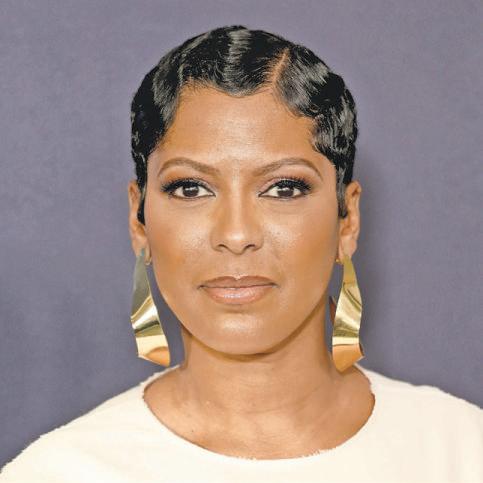


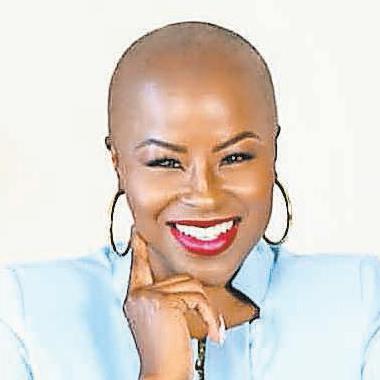


By ReShonda Tate
As the summer of 2024 winds up, the Divine Nine sororities—representing a powerful network of over 500,000 members—celebrate the induction of distinguished honorary members, individuals who are extended membership without going through the traditional pledging or initiation process. Tese honorary memberships are ofen awarded to women who have achieved signifcant accomplishments or have made outstanding contributions to society in ways that align with the values and mission of each sorority.
Te Divine Nine refers to the nine historically Black Greek-letter organizations that make up the National Pan-Hellenic Council (NPHC), and each of these organizations has a process for selecting honorary members. Tese individuals may be recognized for their professional achievements,
philanthropy, community service, or infuence in areas such as education, politics, or entertainment. Honorary membership is considered a prestigious recognition, and those who receive it are ofen prominent public fgures, including celebrities, activists, and leaders in various felds.
Each sorority has welcomed new faces into their esteemed organizations. This year, the spotlight shines on several notable Texans who have been recognized for their signifcant contributions to their felds and communities.
At its 71st Boule ceremony held in Dallas last month, Alpha Kappa Alpha Sorority, the nation’s frst Black sorority founded in 1908 at Howard University, proudly inducted three new honorary members - all Texans.
NOTICE TO BIDDERS
Tamron Hall, a Luling, TX native, is a celebrated broadcast journalist and author. Hall, known for her Emmy-winning daytime talk show and her roles as an NBC News correspondent and MSNBC anchor, has made signifcant strides in media and public advocacy.
Attica Locke and Tembi Locke, Houstonians (and daughters of renowned attorney/ politician Gene Locke) are both acclaimed authors, screenwriters and producers.
GAMMA RHO SORORITY, INCORPORATED
Sigma Gamma Rho Sorority, Inc., founded in 1922 at Butler University, welcomed 15 new honorary members during their 60th Boule in Houston last month. Tis year’s inductees include two notable Houstonians.
Latavia Roberson, an original member of the Grammy-winning group Destiny’s Child,
The Metropolitan Transit Authority of Harris County, Texas (METRO) is planning to issue the procurement documents listed in this advertisement.
IFB No. 4024000191: Polk Bus Operating Facility (BOF) Administration Interior Reconstruction. Solicitation will be available on or about 07/30/2024. Prospective bidders/proposers can view and download these solicitations by visiting METRO's website at ridemetro.org/Open Procurements. If you are unable to download the documents or are having difculty, please contact 713-615-6125 or email Contracts/Property Services at propertyservices@ridemetro.org.
has transitioned from music to become a successful entrepreneur and non-proft CEO. Kim Roxie , the founder of LAMIK cosmetics and a prominent breast cancer advocate.
PHI BETA SORORITY, INCORPORATED
Zeta Phi Beta Sorority, which was established in 1920 at Howard University, inducted 15 new members at their July Boule, including one woman who now calls Houston home.
Leela James, an acclaimed singer whose debut album “A Change Is Gonna Come” earned her Soul Train and NAACP Award nominations, who also works as a mental health and youth empowerment tadvocate through her GIRLS TALK Initiative.
*Delta Sigma Teta Sorority, Incorporated will hold its national conference in 2025.
NOTICE TO BIDDERS
The Metropolitan Transit Authority of Harris County, Texas (METRO) is planning to issue the procurement documents listed in this advertisement.
IFB No. 4024000200: 54 Scott Operator Restroom. Solicitation will be available on or about 08/13/2024. Prospective bidders/proposers can view and download these solicitations by visiting METRO's website at ridemetro.org/Open Procurements. If you are unable to download the documents or are having difculty, please contact 713-739-6886 or email Contracts/Property Services at propertyservices@ridemetro.org.
By SUNDAY FADULU, MD
August is National Immunization Month, a time to focus on the importance of vaccines and how they can keep you and those around you safe from serious diseases.
Why Vaccination Matters
Vaccines protect against viral diseases like the flu, measles, COVID-19, and respiratory syncytial virus (RSV). And when you get vaccinated, you’re not just protecting yourself; you’re protecting those who can’t get vaccinated, like infants and people with health conditions that compromise their immune systems.
Key Vaccinations To Consider
• Flu and COVID-19 Seasonal Vaccines: The flu and COVID-19 viruses change every year, so getting these vaccines annually is essential for the best protection.
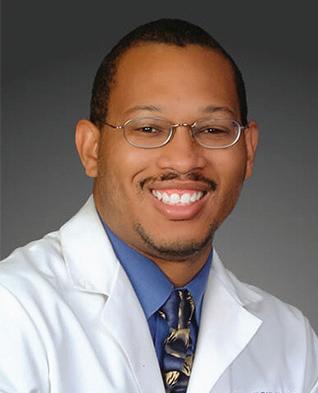
Sunday Fadulu, MD is a family medicine physician caring for patients at West University Clinic. Scan to view Dr. Fadulu’s online profile.
• MMR Vaccine: This vaccine protects against measles, mumps, and rubella, diseases that can cause severe complications like brain damage, deafness, and even death. Rubella can also cause birth defects if a woman is infected during pregnancy.
• HPV Vaccine: The HPV vaccine guards against human papillomavirus, which can cause cervical and other cancers. It’s best given during adolescence but can benefit adults, too.
• Tdap Vaccine: This vaccine protects against tetanus, diphtheria, and pertussis (whooping cough). These diseases can cause serious health problems like lockjaw and breathing issues, and whooping cough can be deadly for infants.


• RSV Vaccine: The RSV vaccine protects against respiratory syncytial virus, which can cause severe respiratory infections, especially in infants and older adults.
The Safety of Vaccines
Vaccines are developed, tested, and approved by experts before they reach your arm. They undergo rigorous testing and continuous monitoring to ensure they are safe and effective. The benefits of vaccination far outweigh the risks, which are usually minor and temporary, like soreness or mild fever.
How Kelsey-Seybold Can Help
Kelsey-Seybold Clinic’s team of medical providers can help you stay on track with your vaccinations and answer any questions you might have. We keep track of your vaccination and know when you’re due for your next shot.




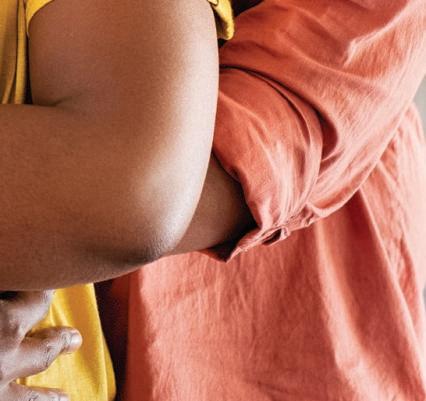
By Raquel Rogers
The Defender Network has garnered national recognition at the 2024 National Association of Black Journalists (NABJ) Conference in Chicago, IL, by taking home two coveted Salute to Excellence Awards. These awards celebrate journalism that not only captures the Black experience but also highlights the issues affecting Black communities worldwide.
Managing Editor ReShonda Tate was honored with a Salute to Excellence Award in the OpEd category for her powerful article, “How one woman’s white tears are washing away Black history.” Tate’s piece delves into the controversial efforts of a Texas woman attempting to ban books

on slavery, shedding light on the broader implications of erasing Black history from educational curricula.
Associate Editor Aswad Walker also brought home a win, securing the award in the News: Series category for his insightful series, “Anti-Blackness.” Walker’s work explores the pervasive and systemic nature of anti-Black sentiment in various societal institutions, offering readers a comprehensive analysis of an often-overlooked issue. In addition to these wins, Defender staffers Tannistha Sinha and Terrance Harris were named finalists in the competition that drew over 200 entries from across the country. Sinha was recognized in the Feature: Series category for her exploration

of the “Houston Teacher Shortage,” while Harris earned a finalist spot in the Digital Media - Sports category for his timely piece, “5 Black Coaching Candidates the Texans Should Consider.”
The NABJ Salute to Excellence Awards Gala is a prestigious event that honors excellence in journalism across more than 100 categories, spanning digital media, magazine, newspaper, photojournalism, television, and radio. Open to all media organizations and individuals, the awards are judged by seasoned professionals who uphold the highest standards of journalism.










By Laura Onyeneho
Houston-based
artist and educator
Hedaya Kelani will be a featured artist at the 11th Annual Islamic Arts Festival, presented by the Islamic Arts Society. The two-day celebration of Islamic art and culture will take place Nov. 9-10, 2024, at the University of Houston, making it the largest and most accessible Islamic art festival in the United States.
Born in Libya and raised in the United States, Kelani’s art reflects a unique blend of her heritage and American experiences while exploring the complexities of cultural identity. This artistic fusion will be on display at the upcoming Islamic Arts Festival, where Kelani will showcase her work alongside a diverse group of artists.
Kelani’s artistic journey began with a deep appreciation for her Libyan roots. “There’s so much to explore,” she says, “The landscapes of Libya are so varied, from the deserts to the ancient castles in the Old City and the lush Green Mountains.” These diverse landscapes inspire her to create pieces that delve into the unseen aspects of her culture. “I don’t see a lot of exploration of these places in art,” she explains, “so I try to depict things that haven’t been seen before.”
However, her artistic identity extends far beyond her Libyan background. Having immigrated to the United States at a young age, Kelani grapples with the experience of existing between two cultures. This is evident in a thought-provoking piece featuring Aladdin in a New York City setting. “It has a deeper meaning,” she explains, “it’s about what it’s like to have two identities in one place.” This sentiment resonates with many immigrants and children of immigrants who navigate the complexities of cultural fusion.

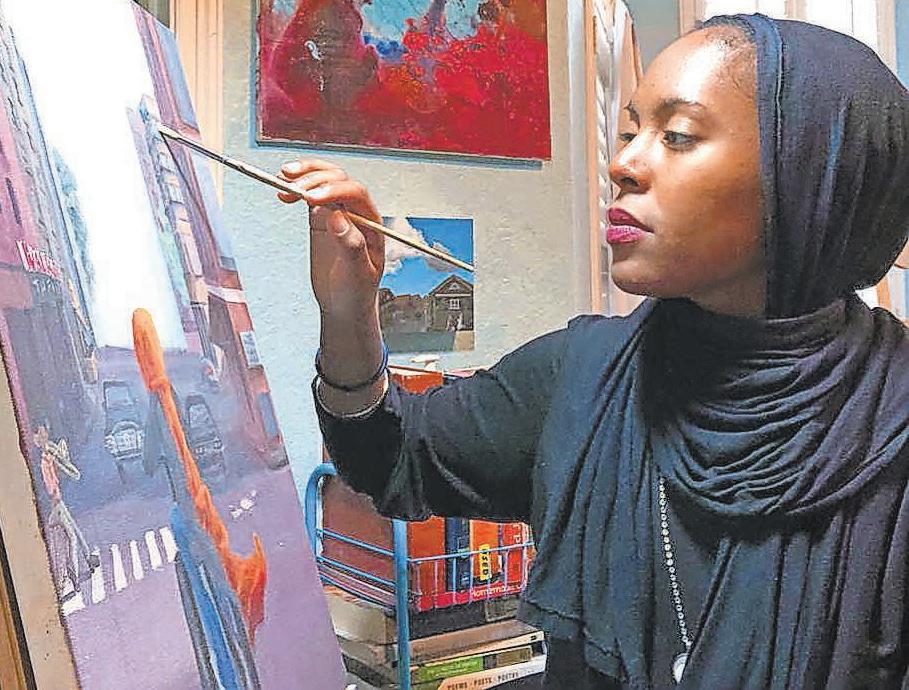
Kelani’s artistic expression is not limited to visual representations. She skillfully incorporates her cultural and religious background into the themes of her work.
One example is a captivating piece inspired by Romeo and Juliet, a classic explored by many of her ninth-grade students at Clements High School, where she teaches English.
“It’s a balcony scene,” she describes, “but it’s inspired by Middle Eastern culture. There’s a Muslim woman at the top and a Muslim man at the bottom.” This unique take on a familiar story showcases Kelani’s ability to bridge cultural divides through art.
Art is a form of personal expression and a fundamental societal pillar for her.
“So many people overlook it,” she laments, “but everyone has that innate creativity.”
She emphasizes the power of art to connect people and foster understanding. “We all look towards art to find something we can relate to,” she says. No matter where you go, art is celebrated. What would our lives be without it?”
This passion for the unifying power of art is a driving force behind her participation
in the Islamic Arts Festival. As a festival veteran, she has showcased her work for several years. This year’s event holds particular significance as it takes place at the University of Houston, making it more accessible to a wider audience. “It’s central to everyone in Houston,” she beams, “Anybody can come!”
The festival promises to be a vibrant celebration of Islamic art, featuring diverse artists, a well-regarded Spanish musical group, the Al Firdaus Ensemble, and even the popular Houston comedian Preacher Moss. For Kelani, the festival is more than just an exhibition; it’s a chance to connect with her artistic community. “There’s a close-knit community in Islamic Art Society,” she shares, “If I miss a year, it feels like something is missing.”
She cherishes exchanging ideas with fellow artists and witnessing their artistic evolution. “There’s so much newness,” she exclaims. Somebody has a new technique, created a new piece of work, and you’re like, wow. This is something that I’m inspired by.”
As an artist and educator, she hopes to
11TH ANNUAL ISLAM FESTIVAL Nov. 9-10
I don’t see a lot of exploration of these places in art, so I try to depict things that haven’t been seen before.”
HEDAYA KELANI
“There are so many different paths people can take,” she says.








Jordan Chiles’ bronze medal still up in air USA Gymnastics is continuing to fight on behalf of Jordan Chiles, who was stripped of the bronze medal she won during the women’s floor exercise final during the Paris Olympics. Evidence has been uncovered that may allow Chiles to remain the bronze medalist in the event.


Romanian Ana Barbosu was originally awarded the bronze but Chiles’ coaches submitted an inquiry and she was then given the bronze. The Romanian Gymnastics Federation later appealed and won because it showed the USA coaches didn’t send the inquiry in time, which stripped the bronze from Chiles. New video submitted now may show that the inquiry did come in time.
PV QB race still too close to call


The Prairie View starting quarterback role still remains very much in the balance. Junior Cameron Peters, senior Jaden Johnson and UH transfer Lucas Coley are all competing in a race that Bubba McDowell says is too close to call right now. “Throughout practice, they all have been doing what they do best,” McDowell said. “It will be one throwing it one day, then another guy running it and another guy doing both. Nobody has broken out yet.” But McDowell anticipates naming a starter by Saturday.
Astros turn to Yordan Alvarez for defensive help

By Terrance Harris
Texas Southern quarterback Jace Wilson is used to adjusting and then proving himself all over again.
It’s really the story of his college career.
Wilson is back in the cycle again as the Tigers’ incumbent, but with a new coaching staff and a slate of newcomers to compete with. That has put the reigning SWAC Newcomer of the Year in the position of again having to earn it in fall camp for new coach Cris Dishman and his staff.
“This is the exact same spot I was in at Furman going into my second year,” said Wilson, who transferred to TSU last year after playing for Furman his freshman year. “Got a new OC and they were bringing in their type of guys that they like. I’ve seen it before.
“I’m not scared of competition or anything like that. They’ve still got to learn the offense. Just like the coaches are learning us, we are learning them, as well.”
Wilson is entering his second year at TSU on the heels of an impressive sophomore season. The 5-foot-11 junior was pressed into duty not long after arriving on campus when star quarterback Andrew Body couldn’t go after Game 1 last season.
His first start at Toledo was a rough one, but as the season went on, Wilson began showing signs of growing into the job and being the leader the offense needed.

Texas Southern junior quarterback Jace Wilson was thrust into the starting position in Game 2 last season and threw for 1,633 yards, 10 touchdowns and five interceptions to earn SWAC Newcomer of the Year honors. Credit: TSU athletic department.
which led to him redshirting the rest of the season and then transferring to TSU.
Then last season under Clarence McKinney and his staff, Wilson was pressed into service and responded with 1,633 passing yards, 10 touchdowns and five interceptions. He also ran for 145 yards and two touchdowns.
The Tigers’ 3-8 overall and 2-6 SWAC record, however, wasn’t enough to warrant a contract extension for McKinney. So it’s another year, another offensive coordinator and a new offensive plan for Wilson.
they’ve been teaching us compared to in the past is exciting.”
Since Dishman, a former star defensive back for the Houston Oilers, arrived in January he has insisted that nobody has a starting job. They will be earned, and that means Wilson, too.
But the first clue that Wilson has already impressed the new coaching staff is that he has been named a team captain. Wilson also was voted the All-SWAC preseason second team this summer.
Slugger Yordan Alvarez is emerging as the Astros everyday left fielder. Alvarez made five consecutive starts in left field last season as the Astros continue to struggle in the outfield. He made his 38th start of the season in left field on Sunday and should easily surpass his previous high for defensive starts this season. He started 40 games in the left field last season and a career-high 56 in 2022.
“It was definitely different,” said Wilson, a former standout at Mayde Creek. “I think they literally told me the morning of the Toledo game that I was going to be playing. That whole week I didn’t get any reps with the ones, so ….


“Last year, it was cool. My dad is a TSU alumni and he actually coached here on one of the staff before. I’m not new to anything at TSU. So it was kind of a coming home moment. It was just crazy how God works.”
It was also just how things have gone for Wilson.
As a true freshman at Furman, an injury to the starting quarterback opened the door for Wilson to start the final six games, and he played well enough to make the Southern Conference All-Freshman team. But the next season, he was replaced by the former starter after just one record-breaking game,
It’s also a new year with stiff competition from transfer Kenneth “KJ” Cooper, true freshman Carter Barnes, Jordan Davis and Cornelius Banks. The current coaching staff recruited Cooper and Barnes, Banks enrolled in the spring and Davis was a redshirt last year.
Interestingly, Wilson has embraced the change and is genuinely excited about what Dishman and his staff have in store.
“I want to say I’m getting used to the change, but it’s definitely not anything new to me,” said Wilson, who attended the prestigious Manning Passing Camp in Louisiana this summer. “Going from a spread offense to a pro-style offense has been exciting. It’s a chance to just learn more.
“Almost every (TSU football coach) has worked in the NFL, played in the NFL, so (they’re) just knowledgeable. And the way
Dishman, however, still hasn’t named a starting quarterback and may not until right before the Tigers’ Aug. 31 season opener against Prairie View.
“I’m excited about our quarterback position,” Dishman said. “We have four guys competing for a starting position. Even though we have quarterbacks back, it doesn’t mean they win the starting job. They’ve got to work just as hard as anybody has got to work.”
That doesn’t seem to bother Wilson. It’s an opportunity to keep growing and proving himself under Dishman’s staff.
“Everything has a reason behind it. Everything is calculated,” Wilson said. “Our new strength coaches are amazing. It just feels like a different program. We are excited. Everybody that’s on the bandwagon now, we are going to keep going forward and if you are not with it, you’ve got to get off.”

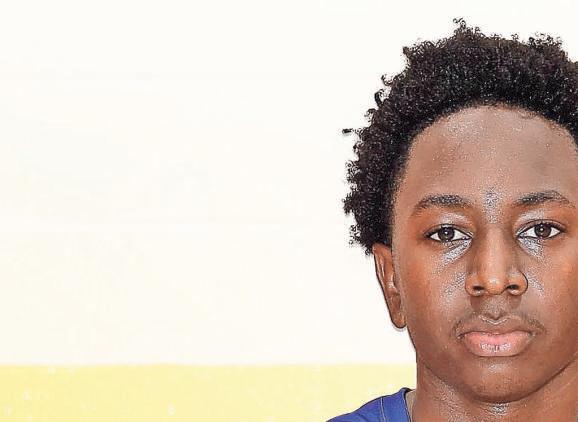



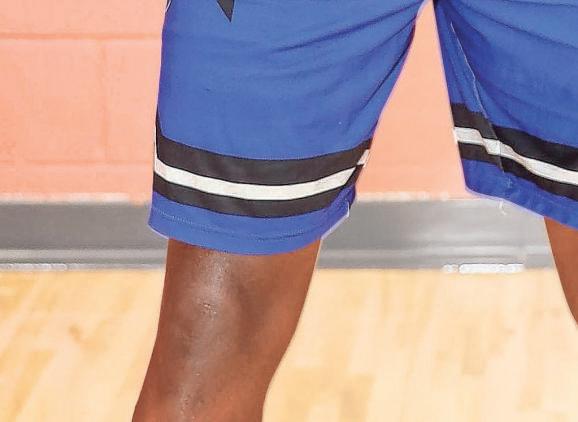
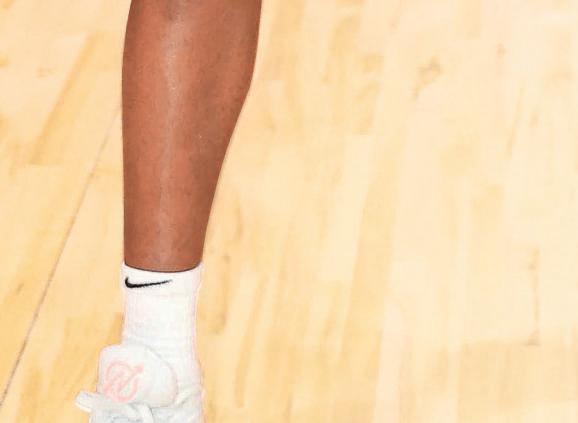









By Jimmie Aggison





In a world where size often dictates success on the basketball court, CE King graduate J’Mar Franklin, a talented 6-foot guard is proving that heart, dedication and skill can outweigh any physical limitations.



Despite being a smaller guard, Franklin has carved out a place for himself at Fort Scott Community College, where he is quickly making a name for himself.

him were signing to bigger schools, Franklin chose to double down on his efforts. He studied the games of smaller yet dominant guards like Jamal Shead, who now plays for the Toronto Raptors, and Zakai Zeigler, a standout at the University of Tennessee. Both players, like Franklin, have had to excel in every aspect of the game to compensate for their lack of height.









“The coaching staff was a key factor in my decision,” said Franklin. “The love they poured upon me and their genuine concern for my growth meant a lot. Coach Matt Glover saw something in me as a point guard and wanted me to take charge and lead them. My plan is to get better and put up great numbers while leading the team to a championship.”



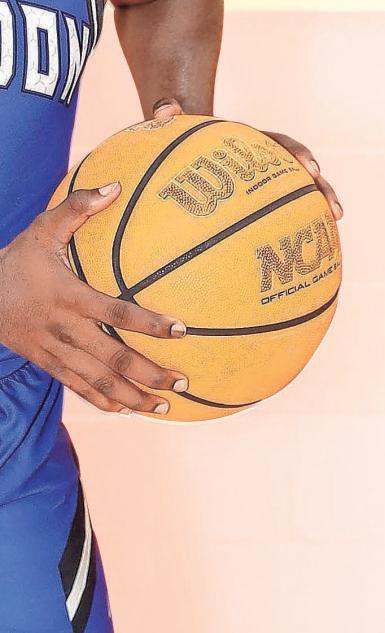




Franklin’s basketball journey began at the age of two, and he quickly developed a passion for the sport. He played for some of the most prestigious youth teams, including Dickinson Select Gators, Gulf Coast Blue Chips, JL3, and RL9, gaining invaluable experience on both the EYBL and Under Armour circuits. Competing in these high-level circuits allowed him to test his skills against some of the best players in the country, providing a solid foundation for his future success.
“Although I played on great teams, I’ve always felt like it was a political issue, knowing that I should have been on the court more, but I was asked to take a lesser role on the team. I didn’t let it discourage me, I just kept believing in myself and trusting my dad and God,” said Franklin.

Franklin’s journey to collegiate basketball was anything but straightforward. The path for smaller guards is notoriously difficult. They often don’t meet the “eye test” that scouts and coaches use to determine a player’s potential. However, instead of becoming discouraged when others around










“On the collegiate level, I was really focusing on the smaller guards and studying their skill and patience to learn how to become a better point guard, so I enjoyed watching Jamal Shead and Zakai Zeigler do it and attempting to recreate it in my own game,” said Franklin. “I was also impressed by Jamal Shead’s defensive abilities. While watching the NBA, I see that other guards have comparable play styles to mine, but as a lefty, I pay special attention to Jalen Brunson in particular. His IQ is high for a point guard, but his potential to score at any time is awesome.”
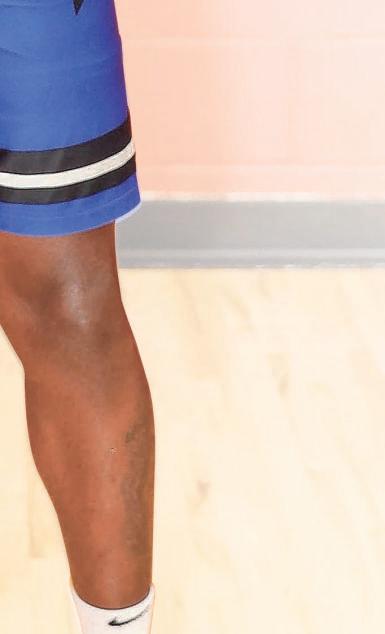
@Iamshiftyjmar1



@Iamshiftyjmar1
Position: Guard



Height & weight: 6-feet-0, 170 pounds








Players he studies: Jamal Shead (Toronto Raptors), Zakai Zeigler (The University of Tennessee), Jalen Brunson (New York Knicks)


In preparation for the next level, Franklin put in countless hours of work during the off-season, training with Smurf Millender (UTSA), Orlando Horton (Prairie View), Kayde Dotson (University of New Mexico), and Wesley Yates (University of Washington). These sessions focused not only on sharpening his shooting and defending but also on honing his court IQ—a crucial element for any successful point guard. Franklin also worked with renowned trainers such as John Lucas, David McMullen, Joe Danforth, Tre Bennett, and Myron Allen, all of whom helped him refine his understanding of the game.
During his freshman year at Clear Brook High School, Franklin started on the junior varsity team but was promoted to varsity by the season’s end. He later attended St. Thomas and CE King high schools, where his hard work and determination paid off. In all, he became a three-year letterman, earning numerous accolades during his senior year, including 1st Team All-State, 1st Team All-District, All-Tournament Team, and MVP of 6A Region III District 21.
Throughout his journey, Franklin has always carried with him the advice of his father, who taught him the acronym F.O.C.U.S.—“Following One Course Until Successful.” This mindset has been a driving force behind Franklin’s relentless pursuit of excellence, helping him overcome the challenges that come with being a smaller guard.



Favorite artist: Drake Committed to Fort Scott Community College





Favorite subject: Algebra 2


Shout-outs: My Family, Mom, Dad, My brothers (team)


“We largely focused on body control and getting into the paint to create for ourselves and others,” said Franklin. “We worked on pick and roll, as well as the ability to get to our favorite spots on the court. I’m continuing to work on being a leader by talking and communicating on and off the court, playing hard intense defense and using my high IQ as a point guard to engage people with great passes while also exhibiting my ability to score and hit open shots.”
“My father has always kept that term around me, and it just helps me trust the process and allows me to be positive,” said Franklin.
As he embarks on his collegiate career at Fort Scott Community College, Franklin continues to follow that course, determined to prove that success on the basketball court is about more than just size—it’s about heart, skill, and an unwavering commitment to the game.
By Amaka Watson
Have you ever been online and seen a video or commentary around elections or political officials, only to find out that the video was edited or written by an unreliable source? Understanding the facts about voting is crucial for ensuring a healthy democracy.
Misconceptions about voting can significantly impact voter turnout and engagement These myths often arise from misinformation, and their effects can be detrimental. The November 2024 elections are crucial. Still, it seems like every day, there are warped conspiracy theories about voting that trigger people’s emotional capacity rather than using logic and reasoning to verify whether the news is true or false.
Given the power of your vote, it’s essential to be well-informed about the voting process. Here are five common US voting
myths debunked to help you become a more knowledgeable and active participant in democracy.
1
Debunked : Local and state elections in Texas often have more immediate and direct impacts on your daily life than presidential elections. These elections can be decided by narrow margins, making every vote crucial. Participating in all levels of elections ensures that your voice is heard across the board.
2
MYTH: EVERYONE HAS AN EQUAL OPPORTUNITY TO VOTE
Debunked: While the U.S. Constitution prohibits denying the right to vote based on race or gender, not all citizens have an equal
voting opportunity. In Texas, laws such as strict voter ID requirements and limited voting hours can disproportionately affect marginalized groups. Awareness and advocacy are crucial to address these disparities.
3
MYTH: COLLEGE STUDENTS HAVE TO VOTE WHERE THEIR PARENTS LIVE
Debunked: College students in Texas can register and vote either in their home state or in the state where they attend school. Texas law allows students to vote based on their campus address, making it easier for them to participate in the electoral process while away from home. By dispelling these myths, Texans can approach the voting process with confidence and clarity, ensuring a robust and representative democracy.
4
MYTH: I CAN’T VOTE IF I HAVE A FELONY CONVICTION
Debunked: In Texas, individuals with felony convictions regain their voting rights upon completing their sentence, including any parole or probation. It’s essential to check your specific status to ensure your eligibility, but Texas law does allow former felons to vote once they’ve fully served their time.

Fake news is news or stories created to deliberately misinform or deceive readers. Misinformation is often created to influence views or for political motives. Credit: Adobe Stock Images
5
MYTH: VOTING IS TOO COMPLICATED AND TIMECONSUMING
Debunked: Voting in Texas is designed to be as straightforward as possible. Early voting, mail-in voting, and ample polling locations aim to make the process accessible and convenient. Voters can also use online resources to understand the ballot ahead of time, making the actual voting process quicker and easier.
